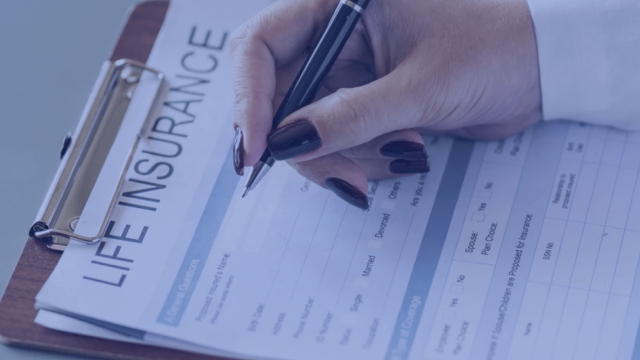Running a small business comes with a unique set of challenges and risks. From managing day-to-day operations to building a strong customer base, there are numerous factors to consider on your path to success. In the midst of it all, one aspect that should not be overlooked is insurance. While insurance may seem like an added expense, it actually plays a crucial role in safeguarding your business and providing peace of mind. Whether it’s protecting your physical assets or covering potential liabilities, having the right insurance coverage can make all the difference in the event of unforeseen circumstances.
Car insurance is a familiar concept to most individuals, as it is required by law in many places. But when it comes to your small business, the insurance landscape becomes more specialized. Small business insurance is designed to specifically address the unique risks faced by entrepreneurs, offering tailored coverage to protect your company, employees, and customers. With an array of policies available, it’s essential to understand the options and make informed decisions based on your business’s specific needs.
By investing in small business insurance, you are not only protecting your financial investment but also ensuring the continuity and growth of your venture. From property and liability coverage to business interruption insurance, each policy serves a specific purpose in shielding your business from unexpected setbacks. In this article, we will explore the various types of insurance available to small businesses and provide insights into how to choose the right coverage for your specific needs. So, let’s dive into the world of insurance and discover the path to success in protecting your small business.
Understanding the Importance of Insurance for Small Businesses
Starting a small business can be an exciting and rewarding venture. As a business owner, it’s essential to understand the importance of insurance in safeguarding your investment and ensuring its long-term success.
One key area where insurance plays a crucial role is in protecting your business assets. Whether you have a physical storefront or operate solely online, your business is likely to have valuable equipment, inventory, and other assets that are vital to your operations. In the event of theft, damage, or unforeseen accidents, having insurance coverage can help you recover from these losses and keep your business running smoothly.
Additionally, insurance can provide protection against liability claims. No matter how meticulous you are, accidents can happen in any business. If a customer or third party experiences bodily injury or property damage while interacting with your business, you could be held legally responsible. Insurance coverage can help cover legal expenses, medical bills, and compensation claims, saving your business from potential financial ruin.
Another aspect to consider is the potential impact of a lawsuit on your small business. Legal disputes can be expensive and time-consuming, draining your resources and diverting your focus from core business activities. Having the right insurance coverage can provide you with the necessary support to defend yourself legally and mitigate the financial burden associated with lawsuits.
Car insurance is also an important consideration for small businesses that utilize vehicles for commercial purposes. Whether you have a fleet of delivery vehicles, company cars for employees, or even just one vehicle for occasional business use, ensuring that you have adequate car insurance coverage is essential. This will protect you from the potential financial ramifications of accidents, damage, or theft involving your business vehicles.
In summary, having insurance for your small business is not only wise but also crucial for its long-term success. From protecting your valuable assets to mitigating liability risks and defending against lawsuits, insurance provides a safety net that can help your business weather unforeseen challenges and thrive in a competitive market.
Types of Insurance Essential for Small Businesses
When it comes to protecting your small business, having the right insurance coverage is crucial. It can provide you with financial security and peace of mind in case of unexpected events or accidents. In this section, we will explore three types of insurance that are essential for small businesses: general liability insurance, property insurance, and commercial auto insurance.
General Liability Insurance: This type of insurance is designed to protect your business from claims of bodily injury or property damage caused to others. It can cover legal expenses, medical costs, and even lawsuits that may arise as a result of accidents or negligence. General liability insurance can be a lifesaver for small businesses, as it helps protect your assets and reputation.

Builders Risk Insurance MichiganProperty Insurance: As a small business owner, you know how important your physical assets are. Property insurance is designed to safeguard your business property, including your building, equipment, inventory, and furniture, against risks such as fire, theft, vandalism, or natural disasters. With property insurance, you can rest easy knowing that you are protected financially if any of these unfortunate events occur.
Commercial Auto Insurance: If your small business utilizes vehicles, whether it’s a delivery van, company car, or even your personal vehicle used for business purposes, commercial auto insurance is a must. This insurance coverage protects your business in case of accidents, damage to the vehicle, or injuries sustained by third parties. It ensures that your business operations can continue smoothly, even if something goes wrong on the road.
By having these essential types of insurance coverage, small business owners can mitigate risks and protect their hard work. It is important to assess your business needs, evaluate associated risks, and consult with an insurance professional to determine the right coverage options for your specific situation. Remember, investing in insurance is investing in the future success and stability of your small business.
Choosing the Right Insurance Coverage for Your Small Business
When it comes to protecting your small business, having the right insurance coverage is crucial. With so many different options available, it can be overwhelming to navigate through the sea of policies and find the one that best suits your needs. However, by understanding the key factors to consider, you can make a well-informed decision and safeguard your business effectively.
Firstly, it’s important to assess the specific risks that your small business may face. Every industry and business type has its own unique set of challenges and vulnerabilities. For example, if you own a construction company, you may need insurance coverage for potential liability claims resulting from accidents at the job site. On the other hand, if you operate a retail store, you might want to focus on protecting your inventory and business property from theft or damage.
Secondly, consider the legal requirements and regulations that apply to your business. Certain types of insurance, such as workers’ compensation or commercial vehicle insurance, may be mandatory depending on your location and the nature of your operations. Understanding these obligations can help ensure that you stay compliant and avoid any penalties or legal issues in the future.
Lastly, don’t forget to review your budget and financial capabilities. Insurance premiums can vary significantly depending on the level of coverage and the insurance provider. While it’s tempting to opt for the cheapest option available, it’s essential to strike a balance between affordability and comprehensive coverage. Assess your business’s financial situation and determine how much you can comfortably allocate to insurance expenses.
By carefully considering the unique risks, legal requirements, and your financial capacity, you can select the insurance coverage that aligns with the specific needs of your small business. Remember that insurance is an investment in the long-term success and protection of your business, so take the time to evaluate your options and make an informed decision.




